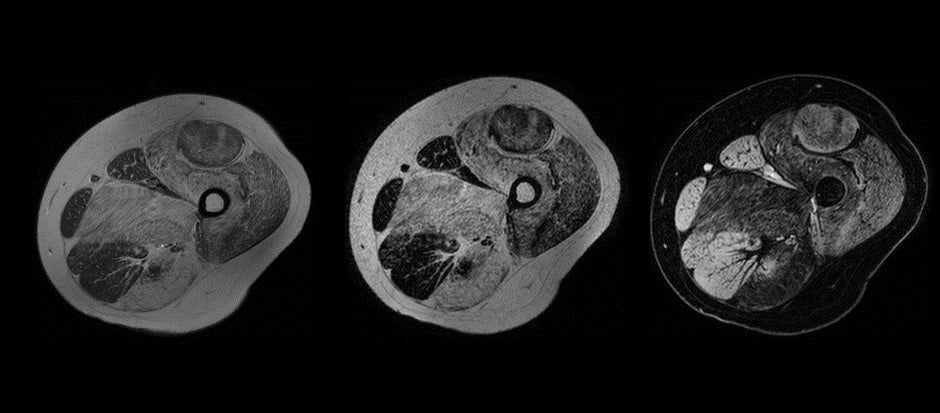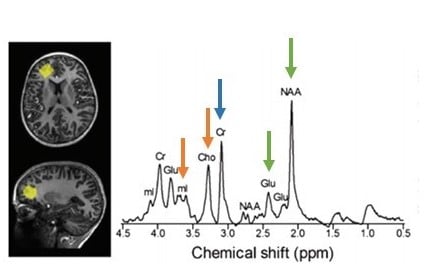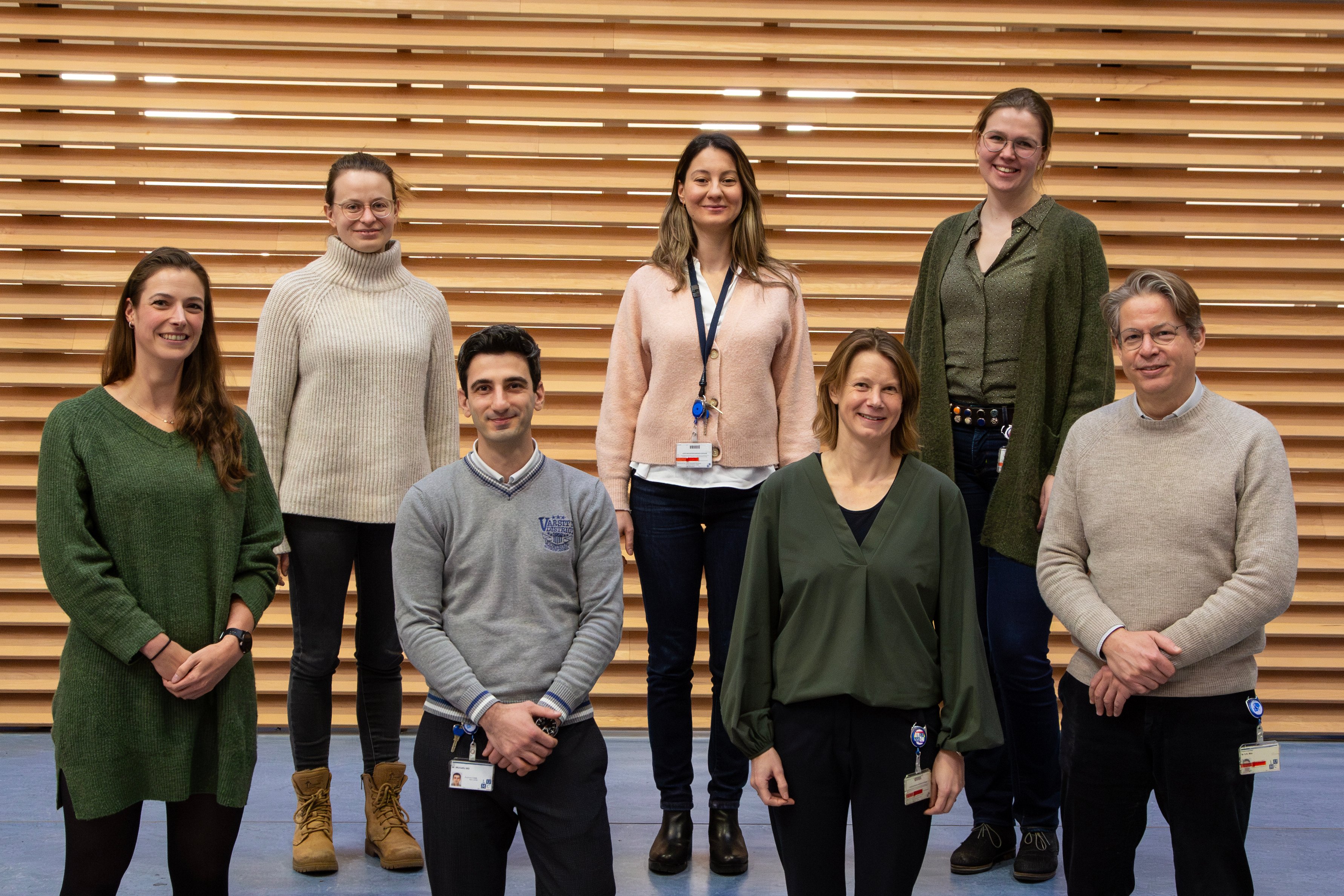Neuromuscular imaging group
Histologically, atrophy, inflammation, fibrosis and/or fat replacement of muscle tissue and fiber size changes are prominent features of muscle diseases. While these aspects can be assessed using a muscle biopsy, this is invasive and only covers a specific small area in a single muscle. In the neuromuscular imaging group, we have implemented quantitative MRI tools to study fat replacement, inflammation, muscle metabolism and muscle architecture in a large range of muscles and in several of the diseases where the LUMC is are NFU expert center. These include Duchenne muscular dystrophy, Becker muscular dystrophy (BMD). Limb Girdle Muscular Dystrophy (LGMD) and Myasthenia Gravis (MG). In addition, we focus on the development of new tools to assess muscle function during movement.
…Histologically, atrophy, inflammation, fibrosis and/or fat replacement of muscle tissue and fiber size changes are prominent features of muscle diseases. While these aspects can be assessed using a muscle biopsy, this is invasive and only covers a specific small area in a single muscle. In the neuromuscular imaging group, we have implemented quantitative MRI tools to study fat replacement, inflammation, muscle metabolism and muscle architecture in a large range of muscles and in several of the diseases where the LUMC is are NFU expert center. These include Duchenne muscular dystrophy, Becker muscular dystrophy (BMD). Limb Girdle Muscular Dystrophy (LGMD) and Myasthenia Gravis (MG). In addition, we focus on the development of new tools to assess muscle function during movement.

In many neuromuscular disorders, symptoms are not confined to skeletal muscle. For instance, in about 30% of patients with Duchenne muscular dystrophy (DMD), cognitive impairment and behaviroral problems are present, with an unknown etiology and prognosis. In patients with Pompe disease treated with enzyme replacement therapy, the treatment does not cross the blood-brain-barrier and therefore does not treat the brain. Classic-infantile Pompe patients now clearly develop progressive white matter (WM) lesions and cognitive problems. We use quantitative MRI techniques to study the pathophysiology of the cognitive problems, and relate them to genotype and phenotype.
…In many neuromuscular disorders, symptoms are not confined to skeletal muscle. For instance, in about 30% of patients with Duchenne muscular dystrophy (DMD), cognitive impairment and behaviroral problems are present, with an unknown etiology and prognosis. In patients with Pompe disease treated with enzyme replacement therapy, the treatment does not cross the blood-brain-barrier and therefore does not treat the brain. Classic-infantile Pompe patients now clearly develop progressive white matter (WM) lesions and cognitive problems. We use quantitative MRI techniques to study the pathophysiology of the cognitive problems, and relate them to genotype and phenotype.
We have strong links with the Neurology, Human genetics and Anatomy departments, and aim to link our MR findings to both clinical findings and genotype. We have extensive collaborations both in the Netherlands and world-wide, and participate in several multi-center natural history and therapeutic studies in these diseases.

Projects
Themes for Innovation
Key publications
Team members
Current members:
- Hermien Kan, PI
- Erik Niks, child and adult neurologist
- Rosanne Govaarts, postdoctoral researcher
- Susi Rauh, postdoctoral researcher
- Esther Schrama, PhD candidate
- Evelien Fleerakkers, PhD candidate
- Michel Michaëls, PhD candidate
- Nadine Ikelaar, PhD candidate
- Ozge Findik Sener, PhD candidate

Former members:
- Celine Baligand, postdoctoral researcher
- Chloe Najac, postdoctoral researcher
- Donnie Cameron, postdoctoral researcher
- Jedrek Burakiewicz, postdoctoral researcher
- Nathalie Doorenweerd, PhD candidate and postdoctoral researcher
- Robin van Eenige, postdoctoral researcher
- Aashley Sardjoe Mishre, PhD candidate
- Beatrijs Wokke, PhD candidate
- Kevin Keene, PhD candidate
- Melissa Hooijmans, PhD candidate
- Nienke van de Velde, PhD candidate
- Thom Veeger, PhD candidate
- Tooba Abbassi-Daloii, PhD candidate